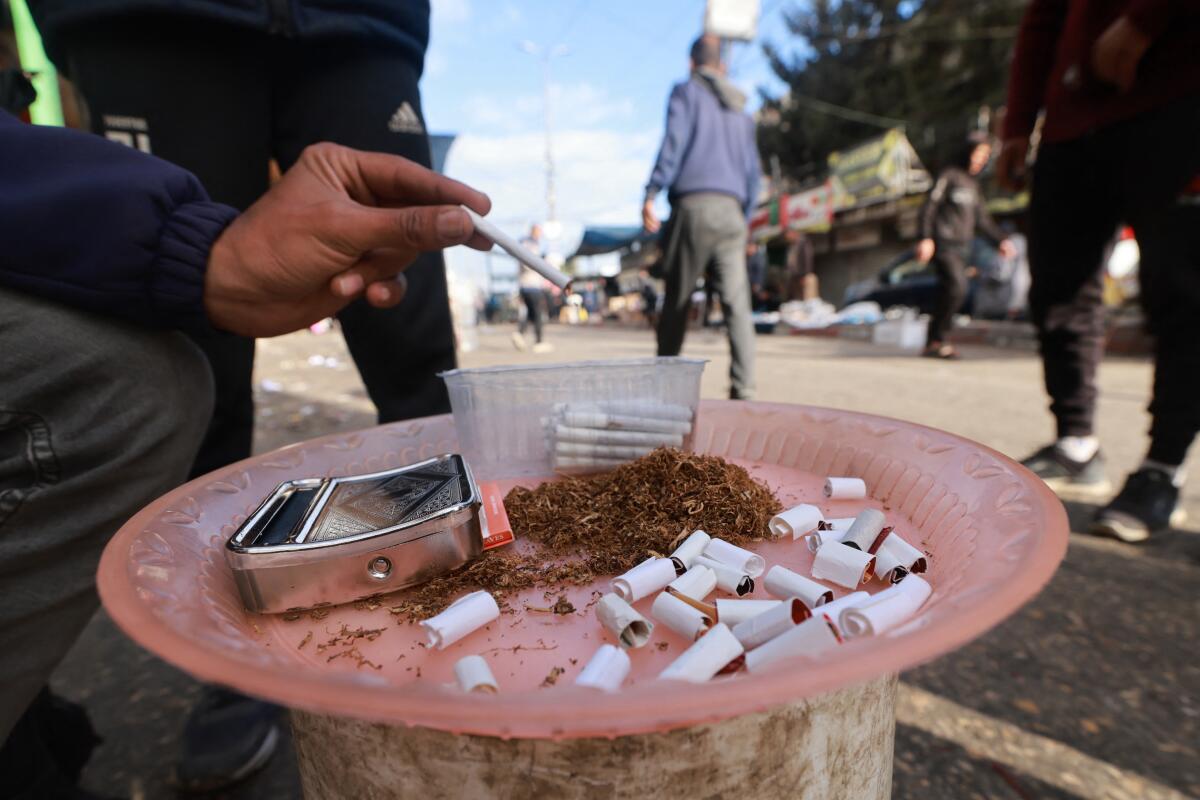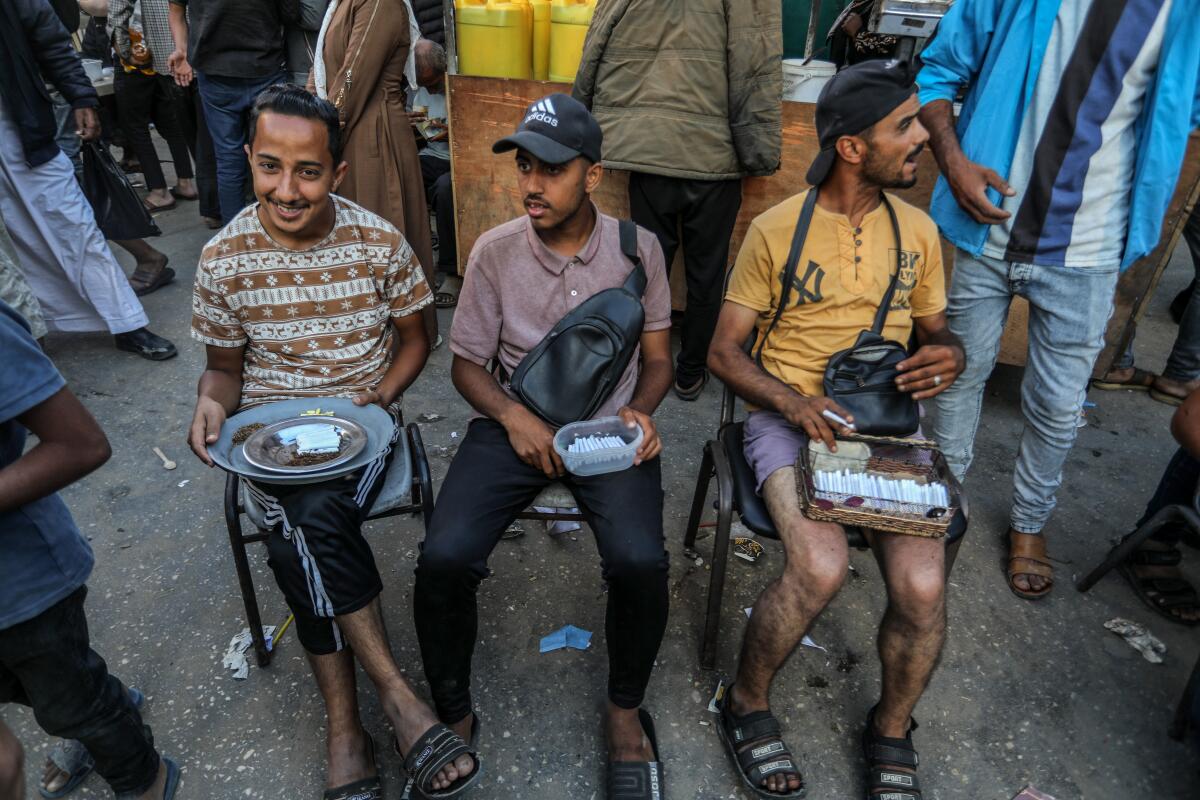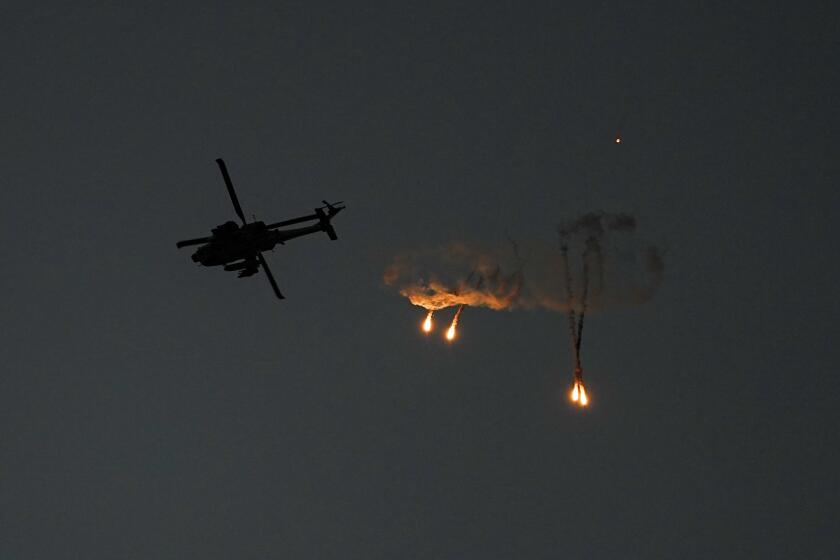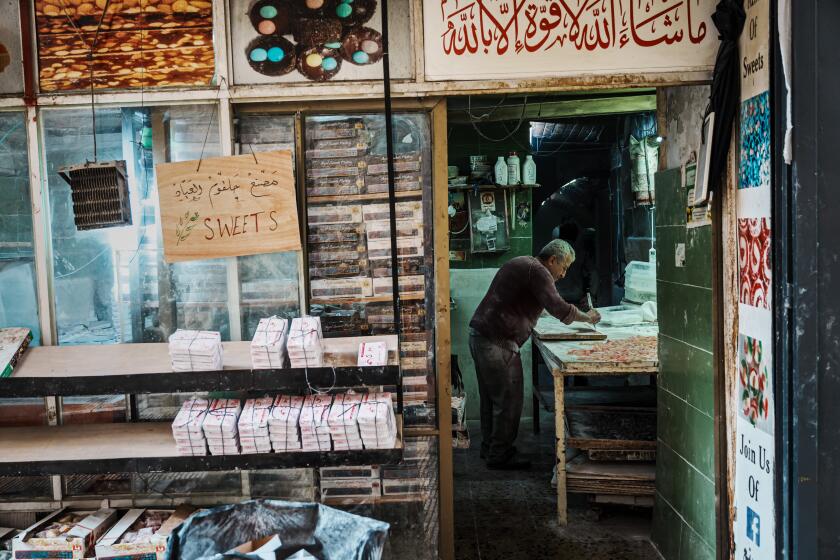$32 for one cigarette? In Gaza, even a nicotine fix is hard to come by

BEIRUT — In wartime Gaza, life’s consolations are scant. Even the momentary solace of a cigarette is all but out of reach.
An acute scarcity of tobacco products has sent prices skyrocketing, leaving smokers in the shattered seaside territory jittery and bereft.
Fathi Sabbah, a 64-year-old father of four and a journalist by trade, said that after Israel took over the Rafah crossing into Egypt in May, he saw single Royal brand cigarettes being sold for 120 Israeli shekels — the equivalent of about $32.
“That is craziness!” he said angrily.
Cheaper brands cost almost $10 for a sole cigarette, but that’s still more than a whole pack before the war.
The thwarted desire for a nicotine fix might seem trivial amid the daily struggle to feed and shelter family, mourn the dead, line up at squalid makeshift toilets and watch children sicken and waste away.
But smokers say the sense of overwhelming despair is part of the circular logic of longing: Sometimes it feels like only a cigarette might help.
“I quit smoking for nine years the first time, and then several times after that, each time for a few months,” Sabbah said. “But this cursed war and the oppression we are living through make it impossible for me to quit now.”

The nine-month-old war — which has killed at least 37,900 people in Gaza, according to authorities there — has made virtually everything far more expensive, in large part because Israel has severely restricted what goods can enter the enclave.
But the rise in cigarette prices has been almost unfathomably extreme. Some merchants say they try to keep down the prices of staples like flour and cooking oil — if they are even obtainable — by charging a higher premium on tobacco.
Locals describe the economics of scarcity: Nearly all of the tobacco now entering Gaza comes from smugglers who manage to slip it among truckloads of food at the commercial crossing still open. Or the few travelers from outside bring it in.
Hamas, whose government used to tax cigarettes that arrived in legal shipments, demands an unofficial tariff of half of any cigarettes it intercepts, Gazans said. Bandits, too, have ransacked humanitarian supplies looking for smuggled cigarettes.
Gaza has traditionally been a smoking culture. A 2021 survey by the Palestinian central bureau of statistics said a third of adult men were habitual users of tobacco.
Before the war, women might occasionally indulge behind closed doors, usually with a hookah, or water pipe. But a kilo of muassel — shisha, or flavored tobacco — costs the equivalent of more than $800, up from about $70 before the war.
A Times special correspondent in Gaza offers a personal account of living in a place where nowhere feels safe.
With foreign exchange almost totally cut off, almost no one has cash to spare. Monthly salaries for government workers, averaging around $215, have been paid out only four times since the war started.
Hamza Al-Kurd, a 42-year-old tea seller who sold cigarettes before the war, said he began smoking at 17, and finds it impossible to quit now. His daily income tops out at about $27 — enough to buy a single high-quality cigarette.
“Sometimes I buy part of a cigarette to smoke for the day,” he said. So great is the compulsion, he said, that “I might not buy food for my children so I can afford a cigarette.”
Abdallah Abu Al-Ayeesh, who fled from Jabaliya in north Gaza to Rafah, said a 20-pack of Royals used to cost him $5.
Now, at $32 a cigarette, with no discounts for buying in bulk, a pack is $640, or more than a 100-pound sack of wheat. It’s little wonder that street vendors tend to sell cigarettes one at a time.
“Sometimes, my friends and I pool our money together and buy a single cigarette to share,” said Abu Al-Ayeesh. They jostle to keep one another from taking too long a drag, “so it lasts for all of us.”
The supply of cigarettes entering Gaza, according to a source in the economy ministry who spoke on the condition of anonymity, has dropped from about 12 million packs of cigarettes a month to a total of about 2.5 million since the war began in October.
Israeli military raids and settler attacks in the occupied West Bank are costing the Palestinian economy $25 million a day, just ask the sweets makers.
In a grim turn, the adverse effects of going cold turkey are suffered not only by erstwhile smokers, but their families. Social workers and aid groups say the war has pushed up rates of domestic abuse.
In close-quarters tent camps filled with displaced people, people say tobacco deprivation sometimes aggravates conflict to the point where women and children might be harmed.
“There have been bloody fights between family members over cigarettes. Sometimes it causes more problems than the lack of food,” said 43-year-old Nader Abdelqader, an architect who lives in one such tent camp in Khan Yunis after escaping an Israeli bombing near Rafah.
Before the war, he was a pack-a-day smoker, with his morning cigarette a “sancrosanct ritual.”
“If I didn’t have it, I’d be in a foul mood all day, making trouble at home and in the camp,” he said. The war forced him to cut back, first to 10 cigarettes, then six, then just a lone morning smoke. But with barely enough money to buy food, he just couldn’t justify the expense.
Between the humiliations of the war and the lack of a nicotine fix, many smokers around him are on edge.
“You can’t talk to anyone who was a smoker — you sometimes see their hands shaking from the nicotine withdrawal.”
That’s why Mahmoud Khaireddine stopped selling cigarettes a few months after the war started.
“You’d sleep and wake up the next day with the price higher,” he said. “People are going crazy because of this, and I just didn’t want to argue with them.
“All I got was problems and fighting — and no money.”

Some smokers have turned to Arabian tobacco, a blend of dried, finely shredded tobacco flakes mixed with herbs and spices and manually rolled with whatever cigarette paper can be found. But overwhelming demand has made it, too, nearly impossible to find.
Enterprising sellers like Ibrahim Abu Shahada, 31, create adulterated Arabian-tobacco blends using ingredients including dried leaves of fig and guava trees. He hand-rolls and sells his product for about $5 per cigarette — a bargain these days.
“There are young people who beg me to lower the price because they cannot quit smoking,” he said.
Even as major Western powers refrain, three European countries’ recognition announcements add impetus for formally designating Palestinian territories a state.
Locally made tobacco blends are juiced up using the nicotine for electronic cigarettes, typically in the form of salts.
“We are facing two wars: the war of killing, and the war of high prices,” said Abu Shahada. “Everything is double the price, and there are no sources of income.”
He has vowed to quit smoking — but to keep selling.
Sabbah, the journalist, used to smoke 30 cigarettes a day, but said ruinous prices have kept his addiction at bay — if only temporarily.
“I will smoke again once the price goes down,” he said. “It is shameful to be defeated by a cigarette.”
Times staff writers Bulos and King reported from Beirut and Berlin, respectively.
More to Read
Sign up for Essential California
The most important California stories and recommendations in your inbox every morning.
You may occasionally receive promotional content from the Los Angeles Times.














